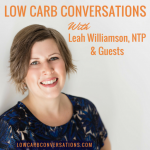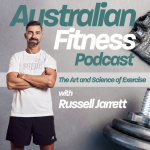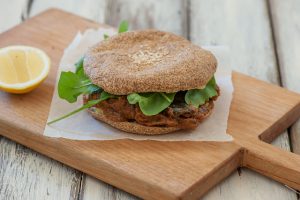The post 8 Top Strategies To Maximising Your Time And Energy appeared first on Pilates & Group Training.
]]>Time is the best thief that has ever existed. No matter who you are or where you live, it robs you of your life – moment to moment, day by day. You can’t catch time, make it up or lock it away hoping to put a pause on it. And no matter how hard you try, it will always get away from you. For the majority of our existence, we take time for granted, believing it will gift us more tomorrow, next week, next month or next year. But we all know that at some point, unexpectedly or gradually, time will no longer be ours to enjoy. It’s free to use, yet it’s priceless. So… how are you investing your time? And more importantly… do you have the energy to make the most out of every second that’s gifted to you?
Consider the formula… Energy = Power x Time
Time is a constant. Power is a variable. Therefore if you want to increase your energy, you’ll need to increase your power. This will enable to you to make more use of your time – to pack in more of every available minute to do all the stuff you want to and need to. As a capable human, you’re able to get started today to increase your power output. And through repetition, you’ll create an engine (i.e. your body) that has the capacity to break down days into hours, minutes and seconds – utilizing every available drop of time that you have. Frequency and consistency is the key. Einstein described compound interest as the eighth wonder of the world… Just as you invest your money, bit by bit, over time the investment grows – the same is true for working on your physiology. OK… enough talk. Time for action. Let’s get that Power On!
- Brain Power… read, brain puzzles (sudoku), learn a new skill (juggling)
- Muscle Power… body weight exercise (push-ups, squats, pull-ups), weight training, pilates
- Cardiovascular Power… run, walk, swim, bike ride, row
- Respiratory Power… breathing exercises, blow up a balloon
Another method we can employ to make the most of our time is to become energy conservationists. Treat your energy as a rare commodity and don’t waste any of it unnecessarily. By doing this, you are creating efficiency.
Efficiency = Energy Output / Energy Input
We’ve learnt how we can increase our Energy Output. What about Energy Input? How do you introduce energy to your system and convert it to a usable form to have a positive effect on your output?
- Recovery… adequate sleep, massage, meditation
- Nutrition… JERF (just eat real food), cut the CRAP (carbonated drinks – all varieties, refined sugars, artificial sweeteners, processed oils and foods)
- Environment… return to nature as often as possible, “earthing” (walk barefoot in nature – grass, sand, water, beach)
- Sunlight… 10-15min per day – as much skin exposure as possible
Initially this all requires a conscious effort and commitment before it is engrained as a daily habitual practice. Challenge yourself to 30 days of using these strategies to increase your power and efficiency, and become the Master of your Time.
The post 8 Top Strategies To Maximising Your Time And Energy appeared first on Pilates & Group Training.
]]>The post Diet, Lifestyle and the Severity of COVID-19 appeared first on Pilates & Group Training.
]]>On the 8th April 2020 the first meta-analysis was published asking the important question – “Does comorbidity increase the risk of patients with COVID-19?” and the answer was: YES – having hypertension, diabetes, COPD (chronic obstructive pulmonary disease) and/or heart disease increased the risk of a more severe outcome among all people diagnosed with COVID-19.
Amongst these papers there is also a review of the literature. This paper set out to find and review the most current, accredited studies pertaining to the basic sciences of COVID-19. A statistical technique was used to find the most important characteristics pertaining to risk. The results reported the strongest hospitalisation risks were age >65 years, BMI >40 and having heart failure as a pre-existing condition.
So now we know for sure that being overweight and having a metabolic illness increases your risk of both hospitalisation and death due to COVID-19.
If you are feeling helpless and anxious in this regard, I want to point out that it doesn’t have to be this way.
Everything that is mentioned in these publications (except age), are things that are driven by diet and lifestyle… things that we have control over.
You might be thinking, “well isn’t it too late?” My answer to that comes in the form of one of my most favourite sayings…
“Q: When is the best time to plant a tree? Answer = 20 years ago
Q: When is the second best time to plant a tree? Answer = Right NOW!”
It is never too late to clean up your diet, to limit or decrease the amount of processed foods you are eating, to move and exercise more, to introduce a structured routine to your sleep, to get more fresh air and exposure to sunlight and less exposure to artificial light. I’ll say it again… it is never too late.
What we have right now is a real reason WHY. Taking action now has never been more important. It doesn’t have to be complicated or involved but I’d strongly encourage you to stop procrastinating and make some changes today.
Here’s how we can help…
Diet and Nutrition: Start with the greatest bang for your buck and by that I mean that you will see changes in your health and weight within a few weeks of making changes to your diet
- Get our FREE LCHF Recipe book and start preparing delicious whole food recipes for yourself and your family
- Join the 6-week Low Carb Challenge – take control of your weight and your health and regain the confidence so you can live a longer, happier life.
- The Low Carb Mastery program – a 12-week program helping you establish low carb as a lifestyle for good. Please contact us if you would like some more information about this program.
Exercise:
COVID-19 has brought with it an opportunity for everyone and anyone to get involved with regular exercise from the comfort of their own home.
No more worries about feeling self-conscious at a gym or not being able to keep up with the guy/girl next to you. Tune into our Eat Play Thrive Online community and join in on our daily (varied) exercise classes.
Remember, there is no better time than right now to take action.
The post Diet, Lifestyle and the Severity of COVID-19 appeared first on Pilates & Group Training.
]]>The post Podcast Interviews: Vicky appeared first on Pilates & Group Training.
]]>Over the years I’ve been interviewed for a number of different podcasts – below I have listed a selection of a few of the more recent ones specifically relating to low carb nutrition. Hope you enjoy!
The Run Smarter Podcast with Brodie Sharpe
Topic: Inflammatory Diets impacting your running
The You Project with Craig Harper
Interview 1: The Paleo Warrior
Interview 2: The Return of the Paleo Warrior
Interview 3: Fasting, Longevity and self experimentation
Low Carb Conversations with Leah Willamson

The Australian Fitness Podcast with Russell Jarrett
We will endeavour to continually update this page as new material becomes available
The post Podcast Interviews: Vicky appeared first on Pilates & Group Training.
]]>The post Does Evidence Exist To Support A Low Carb-Ketogenic Diet? appeared first on Pilates & Group Training.
]]>So does this sort of evidence exist?
IT CERTAINLY DOES!
I am so often asked this question and my response is an excited one, to the effect of ‘where would you like me to begin?’ The library of evidence supporting a low carb and ketogenic diet is growing daily. I have picked 6 top studies below, each of which address a different area of health. If you were in doubt about giving this way of life a go, hopefully these articles will allow you to feel more confident and supported.
Diabetes Management
In this article, the authors address 12 points of evidence. Stand-out points include
- ‘Dietary carbohydrate restriction has the greatest effect on decreasing blood glucose levels’;
- ‘During the epidemics of obesity and type 2 diabetes, caloric increase have been due almost entirely to increased carbohydrate’ and
- Patients with type 2 diabetes on carbohydrate restricted diets reduce and frequently eliminate medication. People with type 1 usually require lower insulin’
Conclusion: “The seriousness of diabetes suggests that we have enough evidence of different types to re-evaluate our current recommendations for treatment”
Weight Loss
This analysis looked primarily at weight loss however it did look at other markers including blood pressure, cholesterol and triglyceride levels. In regards to weight loss, the conclusion was as follows: “the present meta-analysis demonstrates that individuals assigned to a very low carbohydrate ketogenic diet achieve significantly greater long term reductions in body weight compared with individuals assigned to a low fat diet’.
Metabolic syndrome
Carbohydrate restriction has a more favourable impact on the metabolic syndrome than a low fat diet
Metabolic syndrome is a cluster of conditions — increased blood pressure, high blood sugar, excess body fat around the waist, and abnormal cholesterol or triglyceride levels — that occur together, increasing your risk of heart disease, stroke and diabetes. This particular study identified the common thread within this cluster as regulation of insulin. The results from the study support the use of dietary carbohydrate restriction as an effective approach to improve features of Metabolic syndrome and cardiovascular risk.
Appetite and hunger control
Do ketogenic diets really suppress appetite? A systematic review and meta-analysis
If you are someone who has dieted many times in your life, you may know that one of the greatest obstacles to continuing on a particular diet, is that eventually your hunger becomes out of control and will power can only last a finite amount of time. Usually, when we decrease our calorie intake and weight loss occurs, our bodies natural response is to increase appetite. This however does not occur on a ketogenic diet (as outlined below) and is often the reason sited for its success.
Findings: Individuals adhering to ketogenic low carbohydrate diet were less hungry and had a reduced desire to eat. Although these absolute changes in appetite were small, they occurred within the context of energy restriction, which is known to increase appetite in obese people. Thus, the clinical benefit of a ketogenic diet is in preventing an increase in appetite, despite weight loss. Ketosis appears to provide a plausible explanation for this suppression of appetite.
Cardiovascular Risk Factors
An extremely comprehensive review for those of you who like all the details
Therapeutic uses
Beyond weight loss: a review of the therapeutic uses of very low carbohydrate (ketogenic) diets
Very-low-carbohydrate diets or ketogenic diets have been in use since the 1920s as a therapy for epilepsy and can, in some cases, completely remove the need for medication. Recent work over the last decade or so has provided evidence of the therapeutic potential of ketogenic diets in many pathological conditions, some of this evidence is strong and conclusive whilst other evidence is still emerging. This paper discuss each of the following areas in detail:
Areas of current evidence: weight loss; cardiovascular disease; diabetes and epilepsy
Areas of emerging evidence: Acne; neurological diseases including Parkinson’s disease, Alzheimers and sleep disorders; cancers; PCOS and respiratory function
The possibility that modifying food intake can be useful for reducing or eliminating pharmaceutical methods of treatment, which are often lifelong with significant side effects, calls for serious investigation.
Now that you have all the evidence to support this way of eating/living, you may be keen to take the next steps and implement a low carb diet in your own life. So HOW exactly do you do that?
Here at Eat Play Thrive we have developed a 6-week Low Carb Challenge to show you exactly how to do this. The 6 week challenge has been designed so that you can easily and simply implement a low carb lifestyle and begin seeing results immediately. Read more here…
The post Does Evidence Exist To Support A Low Carb-Ketogenic Diet? appeared first on Pilates & Group Training.
]]>The post The Number 1 Nutrition Tip To Avoid Getting Sick This Winter appeared first on Pilates & Group Training.
]]>You might remember your grandmother telling you to stay away from the draft, put on a warm woolly jumper if going out in the cold and not to go to bed with wet hair – so are these the solutions we should be turning to?
The connection between the cold and getting sick is a complex one. There are many myths that exist in this regard but there are also things that we can do to lessen our chance of sickness. Numerous studies have been done over the years linking what we eat and our lifestyle habits to our level of inflammation and our immunity or ability to fight infection. The list of do’s and dont’s is endless and here are a few of the more common ones:
- Load up on dark green leafy vegetables
- Skip the alcohol (well at least not every day)
- Drink green tea
- Stay well hydrated
- Eat more dark chocolate – the real stuff, 85% or greater
- Include plenty of fish in your diet, in particular oily fish
- Create predictable sleep routines and get enough sleep
- Calm down!
- Keep moving
However amongst all these general recommendations comes one very specific and well documented approach to diet that is now proving more and more so to be effective in terms of immunity and inflammation.
The media has done a great job lately of promoting a ketogenic diet i.e. a very low carbohydrate diet, particularly in reference to weight loss or more specifically losing body fat and this association is certainly correct. What you may not know and what is a lot less well publicized is that having ketones present in your blood has numerous other health benefits, many of which are only being uncovered by current research.
Inflammation is a life-maintaining biological process. It is a mechanism our bodies use to deal with internal and external events, such as combating infections, repairing tissues or dealing with the consequences of traumatic injury. A degree of inflammation is necessary for life, however too much inflammation is a problem many of us are facing as a result of our environment and lifestyle.
Drugs can be a quick short-term fix for excessive inflammation but there are lifestyle and dietary modifications that you can make to give yourself a better chance at fighting infection by decreasing your inflammation.
Multiple studies have linked high levels of inflammation in people who have diets high in sugar, trans fat (hydrogenated fats), vegetable/seed oils, refined carbohydrates and alcohol. When we remove or significantly reduce these inflammatory foods from our diet not only do we benefit from not having these foods present but as a result we begin to knock on the door of a ketogenic diet. A ketogenic diet results in an increased level of ketones in the blood and this has recently been shown to aid in controlling chronic inflammation. Ketone bodies themselves have been touted as having anti-inflammatory properties and act within our bodies to inhibit numerous inflammatory pathways.
Ketosis is a safe and effective way to control inflammation thereby giving yourself a better chance at avoiding bugs that might be lurking this winter.
So how do you increase the ketone levels in your blood? A combination of a low carbohydrate diet with some intermittent fasting is the most effective and quickest way of boosting your ketone levels. This combination forces your body to begin using fat as a main fuel source. When fat is broken down, ketone bodies in your blood increase. Production of energy from ketones is both very efficient and clean, a combination that will not only give you the ammunition to fight disease more effectively but will also leave you feeling amazingly energised.
Interested in giving the ketogenic diet a go this winter? Join our 6-week Low Carb Challenge and we’ll show you exactly how to implement this way of life, step-by-step. We kick things off on the 6th of May – join us online from anywhere. Click here for more details
The post The Number 1 Nutrition Tip To Avoid Getting Sick This Winter appeared first on Pilates & Group Training.
]]>The post 6-Week Low Carb Challenge: February 2018 appeared first on Pilates & Group Training.
]]>- Would you like 2018 to be the year that you set yourself up with a sustainable nutrition program that allows you to look and feel amazing?
- Is boosting your energy levels, optimising your health and reducing your weight something you’d like to achieve?
- Is it too much too get started during the January school holiday period but you’d like to get going as soon as the kids are back at school?
Well then we’ve got the perfect program for you!

Following on from the incredible success of our 2017 6-Week Low Carb Challenge, we will be doing it all again in February 2018 and you are invited to join us.
The Eat Play Thrive Low Carb Challenge has been designed to be easy and simple to implement. There is NO weighing and measuring of your food and definitely NO calorie counting. Our low carb approach will leave you feeling extremely satisfied with recipes that feel indulgent and taste delicious.
The program is focused on boosting your energy levels, optimising your health and reducing your weight. It is all about seeing some remarkable results within a 6-week period but also about establishing sustainable habits around your lifestyle.
Click this link to sign up today
Check out this interview with Dayna, a previous 6-Week Low Carb Challenge Participant
This amazingly successful 6-week program is only $97.
It is guaranteed to have you in fabulous shape with a completely new outlook on food and healthy living in a very short period of time. It also incorporates a number of very special things:
- Step-by-step guide to establishing and maintaining a real food low carb healthy fat lifestyle

- Guidelines on how to effectively and safely incorporate fastingto maximise your results
- Hand holding!Online and offline support (4 workshops over the 6 week period) Further details outlined below
- Weekly challenges to keep you engaged and accountable
- Tools:recipes galore, meal plans and quick reference guides
- Bonus: Expert exercise guidelinesto enhance your results
What previous participants have said about the 6-week Low Carb Challenge:
Anne J: “Through the Low Carb Challenge, I have reduced my blood pressure and glucose levels – both are now at an all time low. I now understand my body better, when I am hungry or when I am thirsty. I have lost weight and am now at my goal weight!”
Deb H: “The 3 benefits for me from the Low Carb Challenge have been weight loss, fluid retention is gone and I’m saving on my weekly shopping bills”
Elissa O: “The low carb challenge has allowed me to gain a lot more energy; I have a new found love for cooking – I never liked cooking, tried to be healthy but it was usually bland and had more carbs than I realised. I’m loving trying new recipes and along with my husband are loving the taste and variety of the meals”
Samantha S: “I have been able to lose the baby weight & feeling more like my old self-fitting more comfortably in my old pre-maternity clothes. I have more energy which has resulted in being able to go for a jog for longer (increased intensity & duration & frequency with exercise) rather than walk. I am really enjoying new recipes & inspiration from the amazing efforts of everyone in this group! Thanks for sharing all the lovely pictures & recipes!”
Click this link to sign up today
So how does the low carb challenge work?
The Low Carb Challenge is headed up by Vicky Kuriel. Vicky is a leading LCHF dietitian and has all the experience, information, tools and tips to ensure you are successful in reaching your goals.
If you want to listen to Vicky in action, Click here to watch her presenting at the Low Carb Down Under Conference, to an audience of over 600 people
The February 6-week Low Carb Challenge will be commencing with a workshop on Sunday 11th February 6-7pm.
The program for the 6-week period is outlined below.
Four Workshops (either face-to-face at Eat Play Thrive or you can watch live online via our private Facebook group)
- Week 1 (Sunday 11th Feb 6-7pm): “Getting started” – information and step-by-step guidelines to set you up for a flying start in week 1. Setting expectations and goals for the weeks ahead. Providing you with all the resources required so that you can be on track to be successful from the word go
- Week 3 (Sun 25th Feb 6-7pm) and Week 5 (Sunday 11th March 6-7pm): “Ongoing support, tips and tools” – this group will meet to ensure that you remain focused and on track for the 6 week period. Additional information will be provided so that each individuals diet can be tweaked to optimise results. Each session will be an opportunity to have your questions answered, share your success and be amongst a group of like-minded individuals all on a similar journey to optimising their health and well-being
- Sunday 25th March 6-7pm: “Celebrating your success and maintaining the momentum” – This final meeting will be an opportunity to share one another’s success and also celebrate the 6-week journey. During this workshop you will be given the tools to take everything you have learnt during the challenge and apply it to your life ongoing. We plan to have a little fun at this final meeting too and ask everyone to bring along a sample of their favourite LCHF recipe for others to taste. Amazing prizes and awards are revealed on this evening.
Support and accountability
You can expect an incredible level of support 24/7 during the 6-week period. Our private Facebook group offers all participants the opportunity to stay on track from the word go and remain accountable every step of the way. We guarantee that if you have a question it will be answered via this group within a 12-hour period, ensuring you stay on track and engaged every step of the way. Previous challenges have demonstrated the power of community in the form of the ‘Easy Low Carb Living’ Private Facebook group (only participants of the challenge have access to this group). The group is full of recipes, ideas, inspiration and tips and since the group has been running for a number of years it is now a massive resource of trusted information that you can access at any time.
Click this link to sign up today
This program is for you if:
- You are ready to make better food choices and know that with the right support and information your life could be better OR
- You have been following a LCHF lifestyle or have previously attended one of Vicky’s workshops/challenges but need a little shove in the right direction
So what are you waiting for?
This is an opportunity to start 2018 out on the right foot. Lets do this together
Place are strictly limited for the Low Carb Challenge. In order to keep the challenge personal and stay on top of questions and deliver a high level of support through the Private Facebook Group, we keep numbers strictly limited. We encourage you to sign up today to avoid missing out on this unique experience that we guarantee will set you up for life.
Click this link to sign up today
We are so confident that this program will work that we offer a money-back guarantee – if you follow our guidelines and are still not entirely satisfied with the results, we will give you a full refund*
What others have to say
Russell G: ” I have found it easy to stick to the plan and have not deviating from it for the six weeks. The fact that we have not done this alone but rather as a part of a group has helped to remain accountable (thank you all)”
Jennifer V: “I have reconnected to my body and developed a new self control, looking at food as a source of nourishment and enjoyment – not comfort. I have lost weight (7.5kg!) and bloating is gone. Increased energy and vitality. I am able to push myself with exercise and loving it. I am so glad I did this challenge and found a sustainable lifestyle in the process”
Kath L: “Well my blood sugar levels have gone down and I actually understand how and why. It sure beats the alternative (Insulin) which is the way I was heading.
Mandy H: “I have loved the 6 week challenge! It has allowed me to establish good eating habits, I feel great, and am very happy to have lost few kilos. Thanks Vicky and Joe for the support and all the education”
FAQ:
Q: I am not able to get into Eat Play Thrive for the workshops, am I still able to do the challenge?
A: Absolutely! The majority of our participants do the challenge from the comfort of their homes. All workshops are broadcasted live via a Private Facebook group (you will get access to this group when you join up). Workshops can therefore be viewed live or you can simply watch them at a time that is suitable for you. Communication is via email and the Facebook group and all documents are provided via online sources. Gotta love technology!
Q: I am a mum/dad and would prefer not to be making different dinners for various family members. Are recipes provided in this challenge suitable for my partner and kids?
A: The essence of what we recommend in the low carb challenge is the principle of ‘Just Eat Real Food or JERF. When selecting real food i.e. food that is available to us in nature, our diet ultimately becomes lower in carbohydrates and higher in fat and protein. It is therefore 100% safe and highly recommended that your partner and kids eat this way too. Whilst family members may choose not to stick to all of our guidelines as strictly as you, meals suggested and recipes provided are certainly suitable for the whole family to enjoy together.
Q: I understand the massive health and weight loss benefits of low carb but I love bread, rice and pasta. What do you recommend?
A: Did you know that the more carbohydrate we eat, the more carbohydrate we WANT to eat? In addition, carbohydrate actually stimulates our appetite and perpetuates a need for more. I have had many people see me one-on-one or have completed the challenge with this same predicament, only to discover that their reliance on starchy carbohydrate disappears or significantly diminishes over time. Whilst the initial week or two on the challenge/going low carb will be challenging, as you break this reliance, I can assure you that you will be pleasantly surprised at how little you miss these foods. Whilst these foods are on the banned list during the challenge, some individuals can re-introduce small amounts back into their diet without negatively impacting health or weight. The ability to do this will be determined by your level of carbohydrate tolerance. Understanding your level of carbohydrate tolerance is something we spend a lot of time discussing as part of the challenge, giving you the tools to make the right decisions for your requirements and goals.
Click this link to sign up today
Have more questions? Feel free to get in touch via the contact us page
What would it mean to you if you were lighter, healthier, stronger and fitter? How could this change your life, the life of your kids and family? What would be different? What would be better?
This program is a platform to create that change. Don’t put it off for any longer. “If not now, when? If not you, who?”
Click here to secure your spot today
*Terms and conditions apply
The post 6-Week Low Carb Challenge: February 2018 appeared first on Pilates & Group Training.
]]>The post Is Diet Soft Drink Making You Fat And Sick? appeared first on Pilates & Group Training.
]]>If you have switched to these chemical cocktails in an attempt to lose weight and improve your health, you may want to put down that Coke Zero and keep reading.
There are as many perspectives on the safety/benefit of artificial sweeteners as there are products containing these substances on our supermarket shelves. It is understandably an extremely confusing space in the nutrition world. In many instances these compounds have simply not been around long enough for us to fully understand the long term consequences of including them in our diets on a regular basis. Some reports and reviews of the literature are particularly alarmist, stating that artificial sweeteners such as aspartame can trigger or worsen diseases such as multiple sclerosis, epilepsy, diabetes, Alzheimer’s disease and chronic fatigue (to name but a few). When searching online in regards to the safety and/or benefit of artificial sweeteners conflicting reports and opinions are inevitable.
What do you do and where do you start?
In my opinion, the number one question you should be asking yourself when you reach for that ‘diet’ product is ‘Does this item offer me any real benefit?’ If you ask this question you can at least start from a more informed space in relation to your own health and associated goals. Sometimes you will find that there is no clear benefit… physically, emotionally or otherwise; but on other occasions a benefit may exist for you. For example sweeteners may be used in the short term whilst attempting to wean yourself off a sugar addiction. Yes, of course the best option is always going to be to go for the non-sweetened option altogether but understandably this is not always a realistic option.
Something to consider…
Despite not having all the answers in regards to artificial sweeteners, what we do know, and this is particularly important for children, is that they set up an expectation for ‘sweetness’. In essence they perpetuate the need for sweetness and condition us to believe that for anything to taste good a level of sweetness must be present. Sweeteners continue to feed some part of our sugar craving thereby prolonging the agony of attempting to ditch the sugar habit. This conditioning makes it difficult to then appreciate the gentle sweetness of say a carrot, a capsicum or even an apple and this in itself can really push our whole diet in the wrong direction.
What else do we know?
A meta-analysis published in the Canadian Medical Association Journal found that artificial sweeteners may be associated with an increased risk of obesity, long-term weight gain, diabetes, high blood pressure and heart disease. This is interesting as many of us would assume that replacing sugar with artificial sweeteners would be a better option, however the evidence is pointing in the opposite direction and indeed suggesting potential harm. Whilst artificial sweeteners have no immediate measurable effect on blood sugar levels, concerns have been raised relating to an increase in insulin resistance and glucose tolerance with long-term use.
Another emerging and extremely interesting area of modern nutrition science is how what we eat impacts our gut health and thereby our overall health and longevity. Previously many scientists believed that since artificial sweeteners travel through the digestive system undigested and pass out of your body unchanged that they posed no risk to the individual. What has now been discovered is that many artificial sweeteners appear to disrupt the balance of beneficial bacteria in our gut. Keep in mind that beneficial bacteria are known to protect your gut against infection, produce important vitamins and nutrients and even help regulate your immune system. An imbalance has more recently been linked to numerous problems including inflammatory bowel disease, autoimmune diseases and may even play a role in how your weight fluctuates. Scientists examining gut bacteria have found that normal weight people tend to have different patterns of bacteria in their guts than overweight people.
One of the most alarming statistics relating to artificial sweeteners is the significant increase in these substances that children are consuming. Consumption of artificial sweeteners is up 200% according to a study published by The Journal of the Academy of Nutrition and Dietetics. What does this mean for our kids? Unfortunately it appears only time will tell. My advice would be to incorporate fresh seasonal whole food into the diet of your family on a daily basis. Get your kids into the habit of enjoying fresh real produce every day so that sugar or artificial sweetened options are only an occasional part of their lives.
Types of sweeteners available on the market today
Saccharine (Sweet n’ Low)
- The ‘original’ artificial sweetener
- Animal studies in the 1970s indicated it caused cancer. Warning labels appeared on packaging but were removed again in 2000
Aspartame (Equal)
- Appeared as an alternative to saccharine
- Varying opinions in regards to safety. Thought to be an ‘excitotoxin’ i.e. a compound that overstimulates nerve cells in the brain
- Unsafe for individuals with genetic disorder phyenylketonuria (PKU). Also suggested not to be consumed by pregnant women and those with liver disease
Sucralose (Splenda)
- Relatively new on the market
- Is basically sugar that has been chemically modified thereby we are unable to metabolise it
- Currently too new on the market to really know enough about it
- Cautions include those related to allergic reactions
Stevia
- Herb-based non-caloric sweetener
- ‘Alternative’ sweeteners NOT ‘artificial’ sweetener
- Considered safe
- Liquid or powder form. Packs a powerful sweetness punch therefore only small amounts required
- Drawback: very defined, unappealing flavour!
Sugar alcohols (Polyols)
- Include things like Erythritol, sorbitol, maltitol and Xylitol
- They are a hybrid between a sugar and an alcohol molecule that taste sweet but are poorly digested and absorbed (thereby not contributing the calories)
- Appear to impact gut bacteria. Can stimulate diarrhea or exacerbate irritable bowel syndrome symptoms
- Side effects may include bloating, gas and abdominal pain (Erythritol appears not to cause gut distress)
- Some individuals experience spikes in blood glucose and insulin with some polyols
Note: This is not an exhaustive list of sweeteners but is an attempt to cover the more popular products out there.
On a personal level
So if the evidence is sketchy you might ask what I do on a personal level. Having followed a low carb lifestyle for the better part of about 5 years now, I can honestly say that I can count the number of times I have used artificial/alternative sweeteners on one hand. Personally I am just not a fan. My philosophy for myself and for my family is and always will be based on eating whole real unprocessed food. In my opinion sweeteners just don’t fit in as part of this. On a couple of occasions I attempted a few ‘sweet’ recipes, mainly in an attempt to get my kids eating less sugar, only to have them pull their noses up, opting for strawberries and cream instead! The two sweeteners I tried, stevia and xylitol, just didn’t cut it in terms of taste or texture for us as a family. I have since thrown them out. So do we ever eat sweet stuff? You can bet we do but it’s something associated with a fun day out, like a bike ride into the city followed by ice-cream on the banks of the Yarra River. We have made a conscious decision to enjoy and encourage our kids to enjoy the natural sweetness from fruits and even vegetables thereby reducing the need for any sort of replacements.
Clearly many options and decisions to be made when it comes to sweeteners. In my opinion, anything you can do to wean yourself off the craving for sweetness is the way to go.
The post Is Diet Soft Drink Making You Fat And Sick? appeared first on Pilates & Group Training.
]]>The post IS DIABETES THE NEW COMMON COLD? appeared first on Pilates & Group Training.
]]>Please note that individual advice and consultation are not permitted legally on a social platform. If you seek any specific advice, Vicky is available for private consultation in rooms or via Skype… https://eatplaythrive.com.au/nutrition/
The post IS DIABETES THE NEW COMMON COLD? appeared first on Pilates & Group Training.
]]>The post Low Carb Challenge 2017 appeared first on Pilates & Group Training.
]]>“What you eat in private, you wear in public.”
This is an example of one of the many weekly quotes that we write up on our chalk board outside Eat Play Thrive. Please don’t take offence. It serves as more of a reminder for Joe and I to get our nutrition back on the right track. Yes – just lie you, we do have occasional slip-ups from time to time. The upcoming 6 week Low Carb Challenge, starting at the end of October is just as much for us as it is for you. We’re in this together. Join us to eat clean and feel great. Click here for more info and to reserve your place.
The post Low Carb Challenge 2017 appeared first on Pilates & Group Training.
]]>